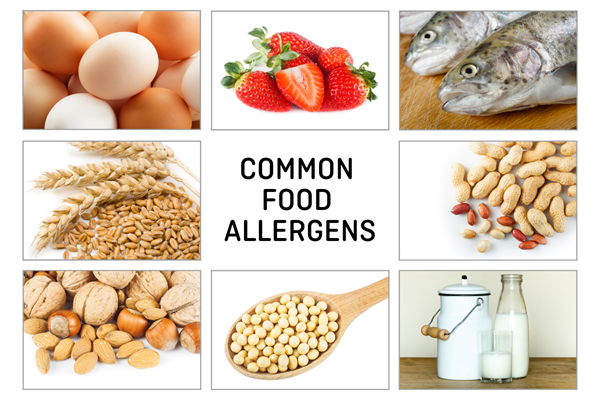Written by Jody Aiken, Health Management Educator at Allergy & Anaphylaxis Australia
Most deaths due to food anaphylaxis (a severe allergic reaction) can be prevented by careful food allergen avoidance and timely administration of an adrenaline (epinephrine) autoinjector when accidents occur.
Many people in the community wrongly believe that a peanut allergy is the most serious allergy you can have, but recent deaths from milk and egg anaphylaxis show that this is not the case. Any food can cause life-threatening anaphylaxis, hence all food allergies must be taken seriously.

Allergy & Anaphylaxis Australia (A&AA) is here to help early education service operators manage food allergy and the risk of anaphylaxis.
How to minimise the risk of a child in care experiencing an allergic reaction
There are seven key ways through which allergic reactions can be minimised:
- Communication is key to good management of children with a food allergy—ensure that all staff know about the child’s allergy and which foods should be avoided
- Obtain current medical information for the child with the allergy and develop a health care/management plan to help minimise the risk of an allergic reaction
- Ensure that ASCIA Action Plans and adrenaline (epinephrine) autoinjectors (e.g. EpiPen®) are stored together in an unlocked, easily accessible location
- Ensure regular staff training in recognising and treating allergic reactions including anaphylaxis
- Understand that unexpected allergic reactions can happen in an undiagnosed child
- Implement practical strategies to reduce the risk of exposure to allergic triggers
- Consider purchasing an adrenaline autoinjector for general use
Some key areas where things can go wrong
Unfortunately, there are a number of situations that can lead to inadequate management of allergic reactions and anaphylaxis. Failing to manage the situation can be life-threatening, so it’s vital to ensure that these situations do not occur:
Failing to brief casual staff
Issue: Casual staff may not be familiar with the health needs of the child with food allergy and the procedures around keeping that child safe.
Solution: All casual staff should be briefed on risk minimisation strategies for children with food allergies and emergency procedures when something goes wrong.
Lack of understanding of the allergy
Issue: Even though the staff may be informed of a child’s allergy, they may not understand the nuances. For example, cow’s milk allergy and lactose intolerance are two very different conditions.
Solution: Accurate information and education should be provided for all staff in regards to each specific allergy. As an example, children with cow’s milk allergy are sometimes offered lactose-free milk that still contains milk protein which children with milk allergy are allergic to. Children with cow’s milk allergy can only have products with no cow’s milk content e.g. soy, rice or oat milk. They also must not be given any other animal milk as a substitute i.e. goats milk.
Accidentally giving allergens to a child
Issue: Early education and care centres are very busy places, and if attention is not paid at all times, the wrong food could be served to an allergic child.
Solution: Is important to have a food delivery system with checks in place to ensure that the right child gets the right food. It can be helpful to have someone checking that the right food is being prepared for the child with a food allergy. Ensure that two people are allocated to reading the labels of food items when preparing and serving food. If possible two people should check that the right food goes to the child with the food allergy.
Distraction due to special events and celebrations
Issue: Special events such as theme days and outings are a high-risk time for children with food allergies. Staff can be distracted with organising extra activities.
Solution: Communication with parents is the key. Let parents know about activities early, so they have an opportunity to attend or organise another carer such as a grandparent, and send appropriate food for their child. The child with a food allergy should not have to miss out, however, they (or the centre as a whole) may have to do things slightly differently to increase safety. Having a strategy in place for special events is the best way to minimise the risk of an allergic reaction.
Food sharing
Issue: We all love to share food and young children are no exception.
Solution: Educating children about not sharing food and drinks is vital. Careful supervision of meal and snack times can help to minimise the risk of food being shared.
Free allergy management resources
Allergy & Anaphylaxis Australia has some helpful resources, including posters you can purchase or print. These resources will assist you in developing risk minimisation strategies and managing allergic reactions if they happen.
Free online training for cooks and chefs
There are two free online courses for cooks and chefs to assist in making your centre safer for children with food allergies. While these are not specifically developed for early education providers, the information is suitable for early education service cooks and chefs. A certificate of completion can be printed on successful completion. You can learn more about these online courses here.
Free online anaphylaxis training for early education professionals
The Australasian Society for Clinical Immunology and Allergy (ASCIA) has free anaphylaxis management training for early childhood education and care. The training provides a consistent approach to prevention, recognition and emergency treatment of anaphylaxis. This course has ACECQA approval. The training can be accessed here.
About CELA
Community Early Learning Australia is a not for profit organisation with a focus on amplifying the value of early learning for every child across Australia - representing our members and uniting our sector as a force for quality education and care.